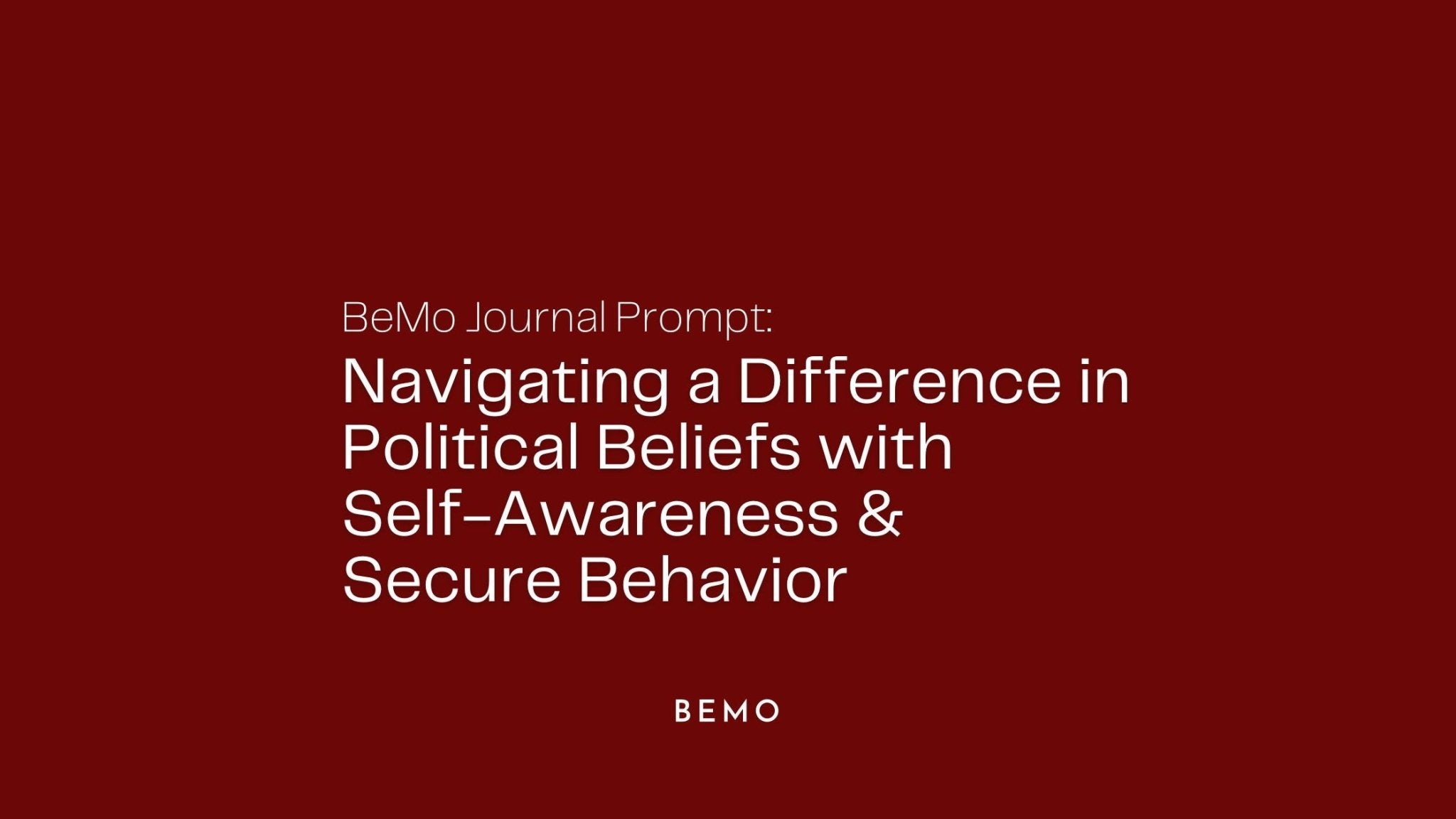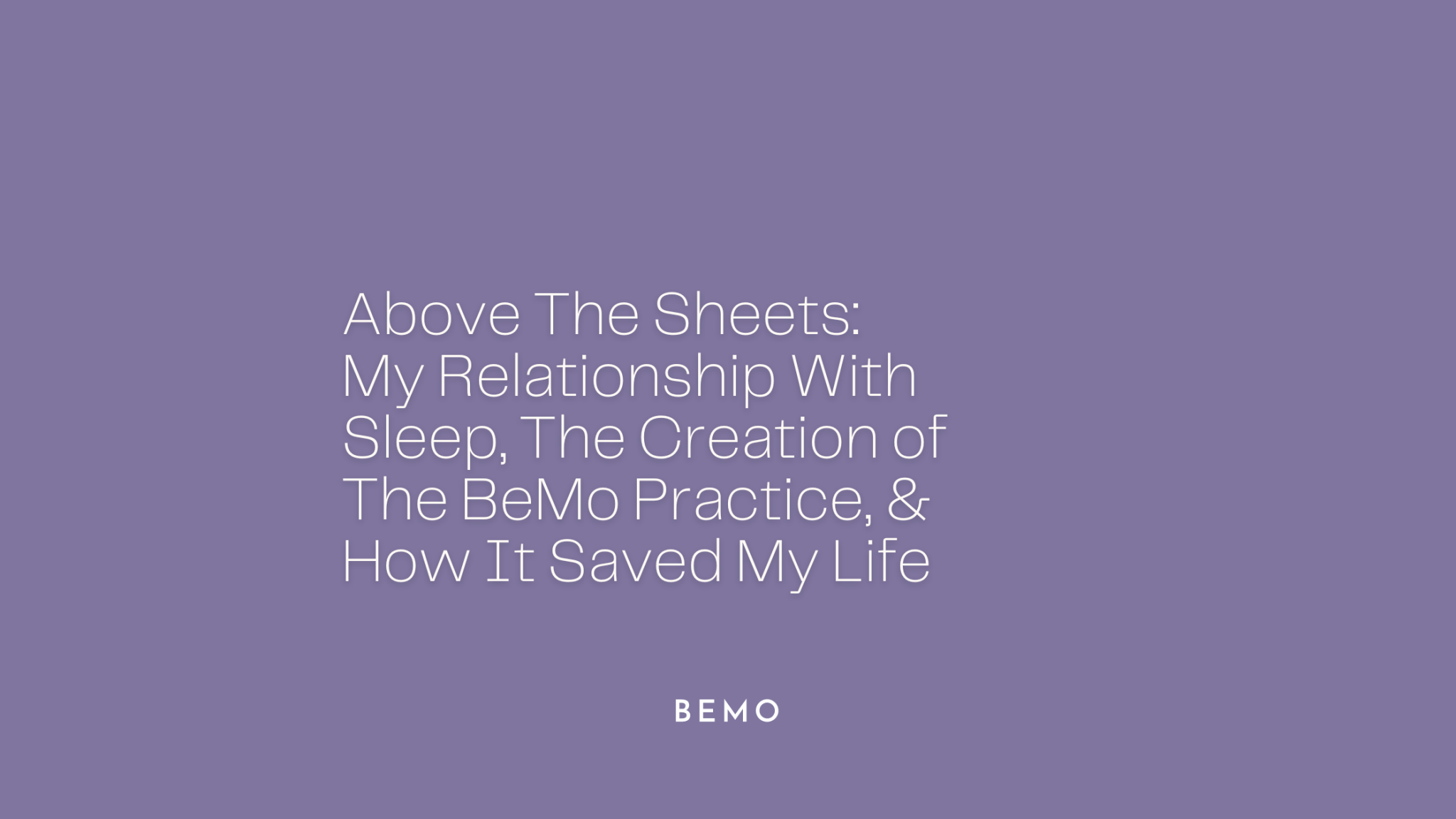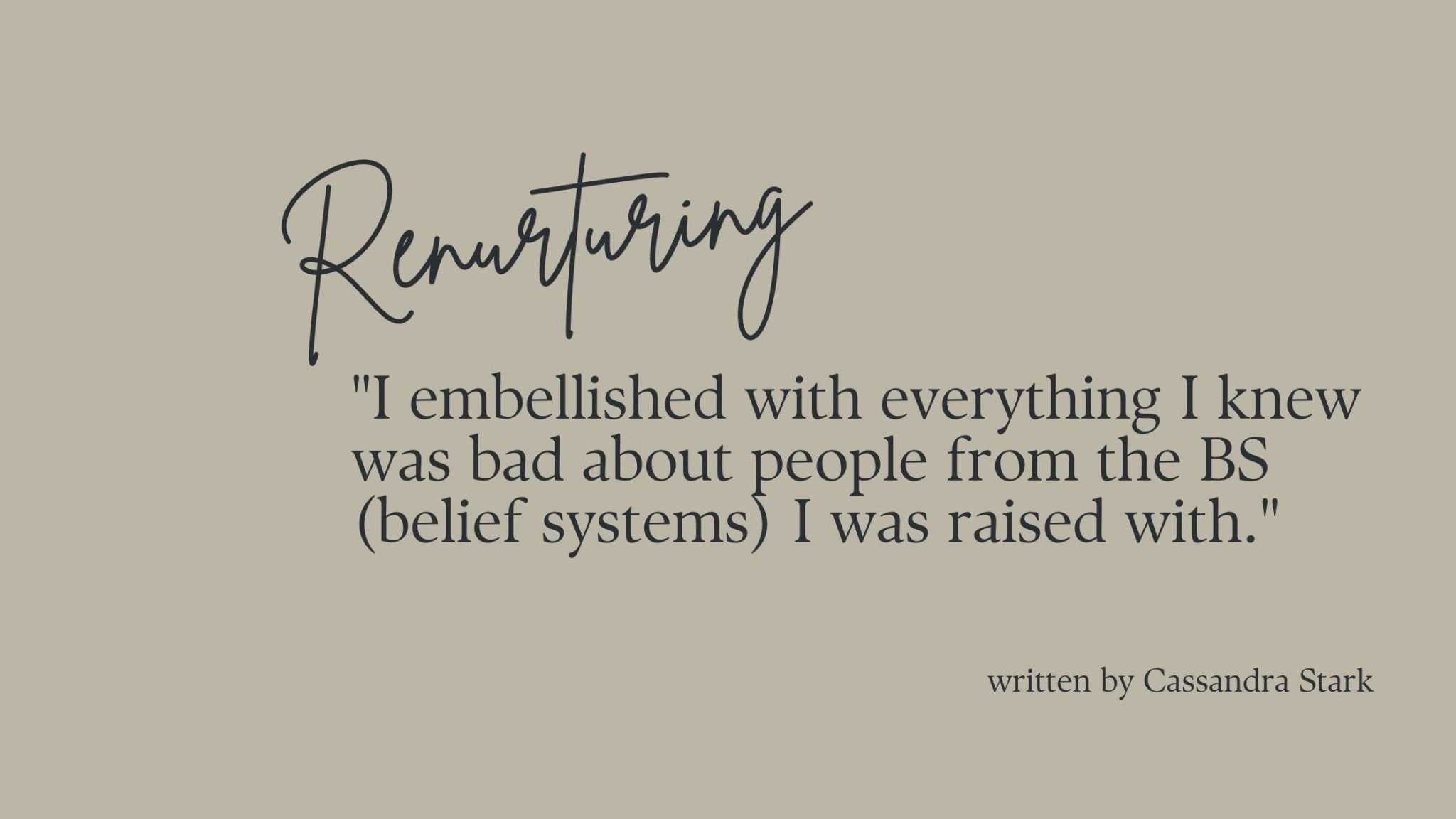It is no secret that for many, political seasons create unrest and divide important relationships. At BeMo, we decided that it was a good opportunity to give some insight into how to respond to a political conversation with secure behavior and how to utilize The BeMo Practice to form these conversations, first and foremost, with yourself.
BeMo Journal Prompt: If you absolutely cannot understand how or why someone supports a particular political stance or candidate because you would choose differently—this is evidence of insecure behavior and hypervigilance. In these moments, ask yourself: What does rejecting their perspective 'save' you from?
This is an adaptation of our deep dive into the belief's we have around waste and time in this previous BeMo Journal Prompt here.
Steps to Navigate the Political Season:
1. Identify Your Triggers:
Start by writing down specific moments or conversations that trigger strong emotional reactions. Reflect on why these moments make you feel defensive, angry, or anxious. What deeper feelings are being stirred up?
2. Explore the Underlying Need:
Ask yourself: What does dismissing or opposing another's political view protect you from?
Hypervigilance, which is an overly heightened state of alertness, can be a sign of insecure attachment behavior (anxious, dismissive, or disorganized). For example, here is how each of these attachment styles might respond to politics at the table.
- Anxious Attachment: "This is going to be bad for all of us. The world is over. Our political system can't be trusted. If people can't just ____, we're all going to ____."
- Avoidant Attachment: "I don't know what's going on and I don't really care."
- Disorganized Attachment: "Are you kidding me? This is the end of the world because of people like you! And honestly? I don't even care anymore."
On the contrary, someone who has a Secure Attachment style might respond with:
Secure Attachment: "That's interesting. I hadn’t thought about it that way. Can you tell me more about why you feel that way?" OR "I want to understand your side, but this is making me really anxious. I feel overwhelmed—can we talk about something else?"
When faced with differing opinions, especially in politically charged situations hypervigilance may stem from an underlying fear of losing control, safety, or connection. It reflects a need to protect yourself from perceived threats, even when those threats are just differing perspectives.
3. Reflect on Personal History:
Consider any past experiences where political or ideological differences led to conflict or discomfort.
How have these past experiences shaped your current reactions?
Who or what does this situation remind you of?
Often, these reactions can be tied back to learned behaviors, where the need for validation or agreement is displayed as an emotional reaction rather than fulfilling on the need for emotional safety first and foremost from within.
4. Challenge the "Need to" Narrative:
Consider how holding onto a rigid "need to" perspective (e.g., "They need to see it my way") is impacting your well-being. This insistence can be a manifestation of a "need to control." In this case, controlling others' perspectives feels necessary to maintain your own sense of security.
What might you gain by letting go of this Needs Narrative and embracing a more flexible, understanding approach?
5. Shift to Empowered Choices:
Write down ways you can choose to respond differently in future political discussions by using the FUNCK Method within The BeMo Practice to build a more secure response. Work through each step of the FUNCK Method to build a conversational response that you may practice in the future or as a response to something you've already experienced.
Instead of feeling compelled to "win" an argument, focus on how you CAN engage respectfully and maintain your emotional equilibrium, or how you can choose to disengage when necessary. Shifting from a mindset of "need to" to one of empowered choice allows you to act from a place of security rather than fear.
6. Practice Self-Understanding:
Use your journal to explore how understanding and fulfilling your own "need for" internally (rather than seeking validation through political debates) can lead to a more peaceful and empowered state of mind during a turbulent political season. Recognizing and addressing the insecure attachment behaviors underlying a fear response can help you navigate political challenges with greater self-awareness and emotional resilience.
By engaging with this prompt, you can transform your approach to the political season from one of stress and conflict to one of self-awareness, understanding, and empowered choice-making. This process can help you maintain your emotional well-being and navigate political challenges with greater ease.









Leave a comment